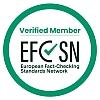
Did the Treasury Department declare the Internal Revenue Service (IRS) will monitor transactions of all U.S. bank accounts over $600? No, that's not true: The Department has made no such declaration. It has proposed a change to the current law on disclosure requirements, but its proposal would require financial institutions to report aggregate numbers, not individual transactions.
The claim appeared in a Facebook post (archived here) on September 15, 2021. The post includes a screenshot of a headline from the Miami Standard and a caption that reads: "Back to paper money it is. The #IRS is 'legalized' theft anyway. I'm not about to tell the robbers where my money is. Shame." The headline reads:
Treasury Department declares IRS will monitor transactions of all U.S. bank accounts over $600
This is what the post looked like on Facebook at the time of writing:
(Source: Facebook screenshot taken on Fri Sep 17 17:25:05 2021 UTC)
The post is wrong because it states a proposal as fact. The Treasury Department has not "declared" a change; at the time of writing, it has proposed one.
In May 2021, the Treasury Department released its "General Explanations of the Administration's Fiscal Year 2022 Revenue Proposals." The proposal at issue can be found on page 94. It reads, in part:
Financial institutions would report data on financial accounts in an information return. The annual return will report gross inflows and outflows with a breakdown for physical cash, transactions with a foreign account, and transfers to and from another account with the same owner. This requirement would apply to all business and personal accounts from financial institutions, including bank, loan, and investment accounts, with the exception of accounts below a low de minimis gross flow threshold of $600 or fair market value of $600.
In other words, the Treasury's proposal would require banks to report gross annual inflows and gross annual outflows from all business and personal accounts, except on very small accounts. Banks would report totals, not individual transactions.
The Center for American Progress, a progressive think tank that supports the proposal, addresses claims like the one in the Facebook post. In an article on its website, the center says:
Unfortunately, bank lobbies are spreading false claims about this proposal. One example is a scripted message to Congress claiming that the proposal would require reporting of 'all transactions of all business and personal accounts worth more than $600.' That is flatly false. Banks would be required to provide just aggregate numbers to the IRS after each year--gross inflow and gross outflow--and not individualized transaction information.
The Center argues that the change is needed to help the IRS spot tax evasion. Groups like the American Bankers Association say it's unclear how the proposal would do that. Regardless, it is clear that the debate is ongoing.
If passed and signed into law, the proposal would take effect for tax years starting after December 31, 2022.


















